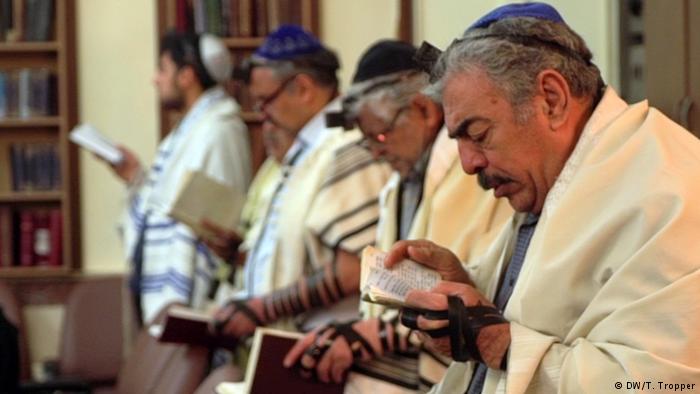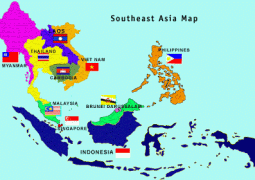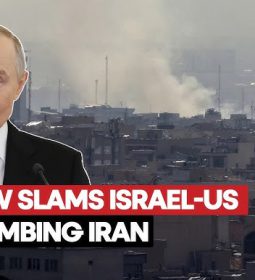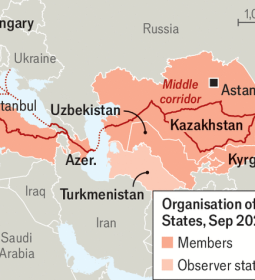Jewish life in Iran was ‘always better than in Europe’

Iran is frequently at odds with Israel, despite having the second biggest Jewish community in the Middle East. DW’s Theresa Tropper spoke with the director of Tehran’s Jewish Committee, about why that is the case.
Siamak Morsadegh: It’s a lot better than many people think. Jews are a recognized minority here, so we can practice our religion freely. We have more than 20 working synagogues in Tehran and at least five kosher butcheries. In some European countries that is not allowed because of animal rights. In Iran, it is.
Generally speaking, the Jews’ condition in Iran has always been better than in Europe. In our country’s history, there was never a time when all Iranians had the same religion, race or language, so there is a high degree of tolerance. Jews and Muslims respect each other, but at the same time, we know there are differences. So the rate of intermarriage between Jews and other groups in Iran is the lowest one in the world, it’s less than 0.1 percent.
Not at all. We have economic relationships with Muslims, my closest friends are Muslims. The hospital I work in is a Jewish hospital, for example, but more than 95 percent of both our personnel and patients is Muslim. It’s strictly forbidden to ask about religion there because the most important verse of Torah, which is written on top of the hospital, says: “Treat other people like yourself.” It does not say “other Jews,” it says “other people.” It shows that we have a practical relationship with each other and cooperate to make the world a better place.
Read: Presidential elections will ‘seriously shape’ Iran’s foreign policy
But Jews are not treated equally under the law. You are not allowed to be judges or hold high political office. Doesn’t that bother you?
Of course being a religious minority causes some problems. Due to the economic crisis here, many Iranians are having problems finding jobs, and, for us, that is even harder, as there are some limitations according to the law. For example, we cannot work as officers in the army; we can only be simple soldiers. We are doing our best to change that. It is a gradual process and cannot be done over night, but we are making progress. One of our biggest successes of the past years is the fact that Jewish kids who go to public schools are now allowed to stay at home on Saturday, if they want to observe the Sabbath – and many of them do, because most Iranian Jews are orthodox.
After the Islamic Revolution in 1979 many Iranian Jews left the country. Why didn’t you?
Back then, many people left the country, even many Muslims. For Jews emigrating was easier, so more of them did. But I am Iranian – I pray in Hebrew and I can speak in English, but I can only think in Persian. In my opinion there is a big difference between nationality and religion; they are not in opposition to each other. Going abroad – and especially going to Israel – is not an option for me, because I think the idea that Jews have to live in one special place in the world is rooted in the idea that we are different from other people. But I think we are equal.
Read: Iranian politicians flock to controversial social media in election campaign
In Iran it is prohibited by law to have any contact to Israel. Is that difficult for you as Jew?
According to our religious teachings, we must obey the laws of the country we live in. And being a Jew is very different from being a Zionist. There are – and have always been – Jews all around the world who are very critical of the behavior of Israel’s government and army. Being a Jew means we must obey Torah and Talmud. Invading other countries and killing innocent people are not Moses’ teachings. We cannot accept Israel’s behavior as Jewish; it is a political and not a religious movement. I personally think that, as the victims of the greatest genocide in the world, Jews should have more empathy with the Palestinian people.
The very genocide you just mentioned was the reason for controversy a few years ago. What did Iranian Jews think about President Mahmoud Ahmadinejad‘s public Holocaust denial?
We did not agree with President Ahmadinejad, and we told him so. He did not directly deny the Holocaust, he questioned it – but I do not even accept questioning it. It doesn’t make sense to question things that are completely clear and accepted all around the world.
Read: Ahmadinejad speech triggers walkout at UN assembly
But that did not disturb our day-to-day life. The financial help for our Jewish hospital by the government, for example, started during Ahmadinejad’s presidency. He was anti-Israel, not anti-Semitic. Iran’s general policy is not changed by its presidents anyway. The main policymaker is Supreme Leader [Ayatollah Ali Khamenei], and the main framework is the constitution.
Still the president does have a lot of influence and a new one is being elected this Friday. What’s at stake for Iranian Jews?
Iranian Jews do not have a specific candidate, people will vote for one of the candidates according to their political interests. This election is all about the economy. The candidate who offers the best solutions to our economic crisis will win. Apart from that, it does not make a difference for us as Jews who is elected. We are Iranian citizens and everyone who is elected must work under the framework of the constitutional law.
- Previous Daily limit on water supply introduced in Dushanbe
- Next President Duterte -Defying the courts: Editorial

















